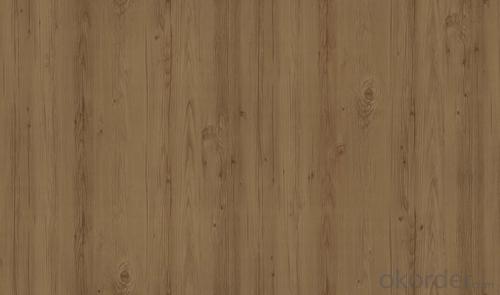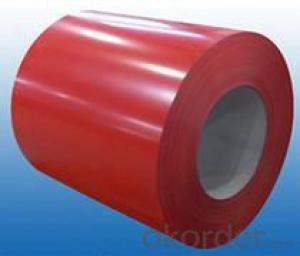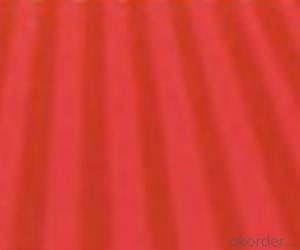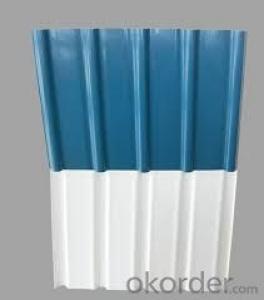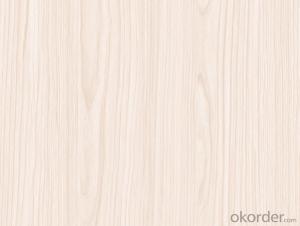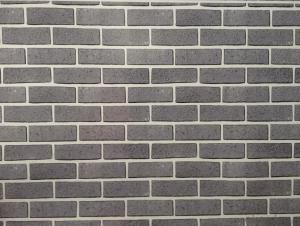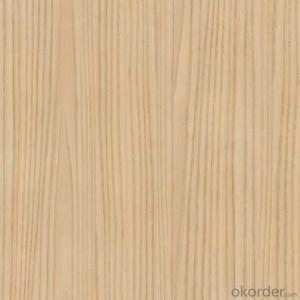color bond surface coating steel plate--XY003
- Loading Port:
- China Main Port
- Payment Terms:
- TT OR LC
- Min Order Qty:
- -
- Supply Capability:
- -
OKorder Service Pledge
OKorder Financial Service
You Might Also Like
Color bond surface coating steel plate :
more than ten years experiences, the products are sold to the domestic city and some international cities we strivc to develop production of color coating steel plate the plating (aluminum )zinc steel. Coil cheickness between 0.6mm and 1.5mm and the width from 600mm to 1250mm and a variety of high durability of color coating steel plate.
the company has multiple layer patterns for customers to choose The company provides products deep processing services ,meet the various needs of customers on board specifications All of out products comply with international quality standards and are greatly appreciated in a variety of different markets throughout the world if you ate interested in any of our products or would like to discuss a custom order please feel free to contact us we are looking forward to forming successful business relationships with new clients around the world in the near future.
We can design the color and thickness according to customers' requirements. The delivery time is only 30 day after you confirm the order.
- Q: Can steel sheets be used for food processing equipment?
- Yes, steel sheets can be used for food processing equipment. Stainless steel is a popular choice for food processing equipment due to its durability, corrosion resistance, and ease of cleaning. It is non-reactive with food and does not impart any unwanted flavors or odors. Steel sheets can be formed into various shapes and sizes, making them suitable for different types of food processing equipment such as mixers, conveyors, tanks, and cutting blades. Additionally, stainless steel is also resistant to high temperatures, making it ideal for applications that involve heat. Overall, steel sheets are a reliable and hygienic material choice for food processing equipment.
- Q: What is the average weight of a steel sheet?
- The average weight of a steel sheet can vary depending on its dimensions and thickness.
- Q: What are the common thicknesses of steel sheets?
- The common thicknesses of steel sheets range from 0.4mm to 6mm, depending on the intended application and industry standards.
- Q: What is the recommended storage method for the steel sheets?
- The recommended storage method for steel sheets is to keep them in a dry and well-ventilated area, preferably indoors, to prevent moisture and rust formation. It is also important to store them flat and adequately supported to avoid bending or warping.
- Q: What is the process of applying anti-slip patterns to steel sheets?
- The process of applying anti-slip patterns to steel sheets typically involves embossing or etching the surface of the sheet with raised patterns or textures. This can be done using specialized machinery or through chemical treatments. The patterns are designed to increase friction and traction, making the steel sheet less slippery and safer to walk on.
- Q: Are steel sheets available in different grades of stainless steel?
- Yes, steel sheets are available in different grades of stainless steel. Stainless steel is a versatile material that is used in various industries, such as construction, automotive, and manufacturing. It is known for its corrosion resistance and durability. There are several grades of stainless steel, each with its own unique properties and composition. The most common grades include 304, 316, 430, and 201. These grades differ in their chemical composition, such as the amount of chromium, nickel, and other alloying elements present. The choice of grade depends on the specific application and the desired characteristics of the steel sheet. For example, grade 304 is commonly used for general purposes due to its excellent corrosion resistance and strength. Grade 316 is often preferred in environments with high exposure to corrosive elements, such as marine applications. Steel sheets are available in various thicknesses, sizes, and finishes, making them suitable for different applications. Whether you need stainless steel sheets for architectural purposes, food processing equipment, or industrial machinery, there is a grade of stainless steel that can meet your requirements. It is important to consult with a supplier or manufacturer to determine the appropriate grade of stainless steel sheet for your specific needs. They can provide guidance on the best grade based on factors such as the intended use, environmental conditions, and budget constraints. Overall, the availability of different grades of stainless steel sheets ensures that there is a suitable option for diverse applications.
- Q: Can steel sheets be recycled multiple times?
- Yes, steel sheets can be recycled multiple times. Steel is one of the most recycled materials in the world due to its durability and recyclability. When steel sheets reach the end of their useful life, they can be collected, melted down, and reprocessed into new steel products. This process can be repeated numerous times without compromising the quality of the steel. Recycling steel sheets not only conserves natural resources but also reduces energy consumption and greenhouse gas emissions associated with the production of new steel.
- Q: How do steel sheets handle vibrations?
- Steel sheets are known for their excellent ability to handle vibrations. This is primarily due to their high stiffness and strength properties. When subjected to vibrations, steel sheets tend to absorb and dampen the vibration energy, thus minimizing the transmission of these vibrations to other parts of a structure or system. The inherent properties of steel, such as its high modulus of elasticity and low damping capacity, contribute to its effectiveness in handling vibrations. The high modulus of elasticity allows steel sheets to resist deformation under applied loads, which helps maintain their structural integrity and stability during vibrations. Additionally, the low damping capacity of steel enables it to dissipate the vibrational energy efficiently, preventing excessive oscillations or resonance. Steel sheets are often used in various applications requiring vibration resistance, such as industrial machinery, automotive parts, and building structures. Their robustness and ability to handle vibrations reliably make them a preferred choice in such scenarios. However, it is worth noting that the specific performance of steel sheets in handling vibrations can vary depending on factors such as sheet thickness, material composition, and design considerations.
- Q: How do steel sheets handle chemical exposure?
- Steel sheets are renowned for their outstanding ability to resist chemical exposure. They exhibit a high level of resistance to corrosion and can endure exposure to a wide array of chemicals, including acids, alkalis, solvents, and other substances that cause corrosion. This exceptional resistance is primarily attributed to the formation of a protective oxide layer, known as patina, on the surface of the steel. This layer acts as a barrier, preventing the chemicals from attacking the steel. Moreover, steel sheets can be further safeguarded by applying various protective coatings, such as galvanization, epoxy coatings, or powder coatings. These coatings provide an extra layer of protection and enhance the steel's resistance to chemical exposure. However, it is important to acknowledge that the resistance of steel sheets to chemical exposure may vary based on the specific type and concentration of the chemicals involved. Highly concentrated or aggressive chemicals may still lead to some degree of corrosion or damage to the steel surface over time. Hence, it is crucial to carefully consider the specific chemical environment and select the appropriate grade of steel and protective coating to ensure optimum resistance to chemical exposure. In summary, steel sheets are a dependable and durable choice for applications that demand resistance to chemical exposure. With careful selection and maintenance, they can effectively withstand diverse chemical environments and deliver long-lasting performance.
- Q: Are steel sheets suitable for agricultural applications?
- Yes, steel sheets are suitable for agricultural applications. They are durable, corrosion-resistant, and can withstand harsh weather conditions, making them ideal for various agricultural purposes such as constructing sheds, barns, fences, and storage buildings. Additionally, steel sheets can be easily fabricated and customized to meet specific agricultural needs.
Send your message to us
color bond surface coating steel plate--XY003
- Loading Port:
- China Main Port
- Payment Terms:
- TT OR LC
- Min Order Qty:
- -
- Supply Capability:
- -
OKorder Service Pledge
OKorder Financial Service
Similar products
Hot products
Hot Searches
Related keywords

